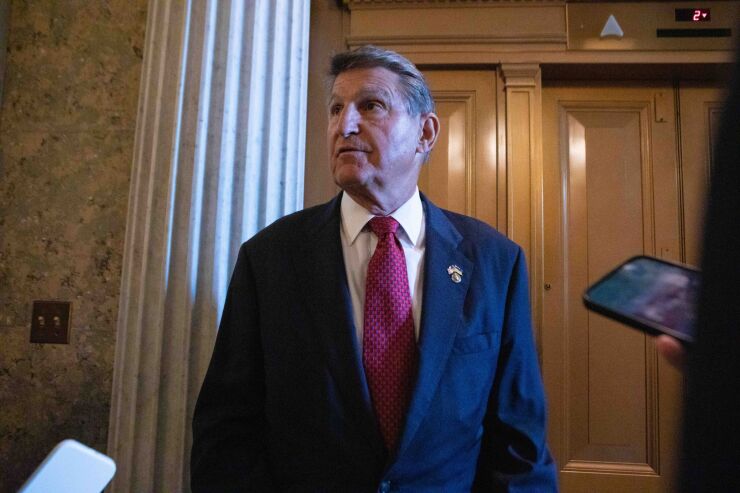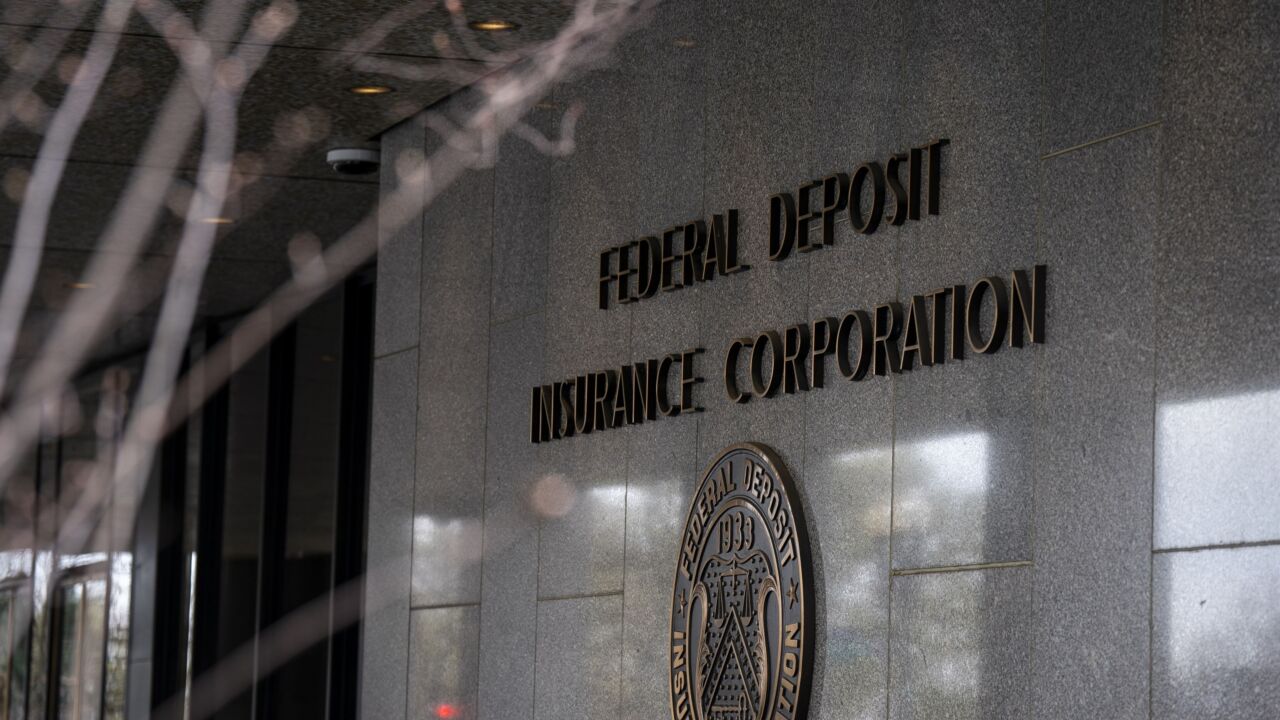
Banking-as-a-service institutions are applauding legislators' calls for fairer exams and increased transparency from federal financial regulators.
Last week, the American Fintech Council, which represents BaaS banks, supported the introduction of the Fair Audits and Inspections for Regulators (FAIR) Exams Act by Sens. Jerry Moran, R-Kan., and Joe Manchin, D-W.Va.
David Patti, director of communications and government relations at Customers Bank in Phoenixville, Pennsylvania, said financial institutions would prefer to be told what the exact expectations are for bank-fintech partnerships and other matters, instead of guessing until they make a mistake in the eyes of regulators. Brian Graham, a co-founder and partner at Klaros Group, said regulators haven't issued many clear-cut rules for BaaS, and the process for challenging those agencies can be precarious.
"There's a legitimate point to be made that much more of the public policy around banking is happening outside of the law and regulation process, and [instead] in the supervisory process, which can both feel more arbitrary and unfair and sometimes can be arbitrary and unfair," Graham said.
Phil Goldfeder, CEO of the American Fintech Council, said in a prepared statement in response to the proposed legislation that "innovative banks are rightfully held to the highest standard of transparency, compliance and responsibility," but added that regulators should meet the same bar.
Banking-as-a-service, when fintechs and banks partner to deliver services, has been high on regulators' radars in recent years. In June, the Federal Reserve, Office of the Comptroller of the Currency and Federal Deposit Insurance Corp.
Patti said that the $22 billion-asset Customers, a player in the BaaS space, is in constant communication with its regulators to make policy decisions for the bank to follow. But if regulators make individual decisions with each financial institution, it's hard to know if each bank is treated consistently, he said.
"In the absence of bright lines, it depends on relationships [with regulators]," Patti said. "So there's probably not much transparency. ... It's not transparent and not public."
BaaS sponsor banks, which bear the brunt of the regulatory burden in these relationships, have also
At the American Fintech Council's 2024 policy summit, banking-as-a-service was the talk of the town as experts shared how to avoid missteps in the business.
These regulatory decisions can also seem ad hoc or idiosyncratic, Graham said, as determinations are made based on internal assessments instead of publicly available information.
"Right now, BaaS activities are a significant area of focus for the regulators, fair or unfair," Graham said. "It does appear that much of what the regulators want to achieve in the space — from a policy point of view or risk management point of view or compliance point of view — is being done through enforcement actions."
Patti said that Customers has a good relationship with its overseers, but he thinks an independent examination review protocol would increase visibility of policies.
The full text of the FAIR bill hasn't been published, but
The FDIC, Fed and OCC each have ombudsman offices designed for banks to appeal or question regulatory decisions without fear of retaliation. Graham said, however, that banks he's spoken to don't see these units as a practical option, since the process is still under the regulators' umbrella.
The Fed and FDIC declined to comment. The OCC did not respond to a request for comment.
Neither Graham nor Patti think the FAIR bill will pass. But similar to how regulators can use actions to make policy, Patti thinks it's possible
The court hasn't yet issued a decision on the case, but






